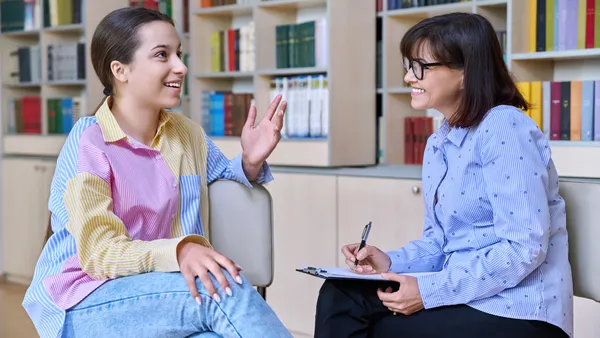Dive Brief:
-
An analysis from Illuminate Education found coronavirus school closures will likely cause a “COVID slide” of two to four months of learning loss, but the gaps are expected to be less pronounced in students who frequently interacted with teachers than in those who did not.
-
The research suggests students will have significant gaps in reading and math, with reading loss of about two months across the K-2 grades, but greatest for kindergartners. Oral reading fluency loss is expected to be most pronounced among 5th-graders.
-
Math gaps are expected to be highest across all K-5 grades, with projections showing four months of learning loss. The report recommends educators plan a "multi-tiered system of supports" to address the anticipated learning gaps, with fall screenings as a critical component in determining each student’s level of learning loss level, and more time spent on reading and math in early grades to bridge the gaps in those core subjects.
Dive Insight:
Other reports echo similar expectations. Data from NWEA indicates that students will return to school with about 70% of typical learning gains in reading and less than 50% of typical learning gains in math. Jacob Bruno, vice president of professional learning at NWEA, told Education Dive early collection of information on students’ individual progress will be key to closing the gap.
This learning loss comes at a time when many educators will be teaching virtually for the first time. When schools closed this spring, many high-poverty districts focused more on offering support to students, while teachers in more affluent districts were more likely to teach virtually. This year, higher poverty schools are more likely to be all remote. Many schools will hold students to higher expectations than in the spring, including taking attendance, returning to a normal grading scale and providing longer hours of online instruction.
Many parents responding to a Learning Heroes’ survey are concerned about their children’s learning losses, as well. Thirty-six percent of respondents said their child will need additional support to recover from learning loss, and 45% said they would would be very likely or extremely likely to send their child to summer school.













